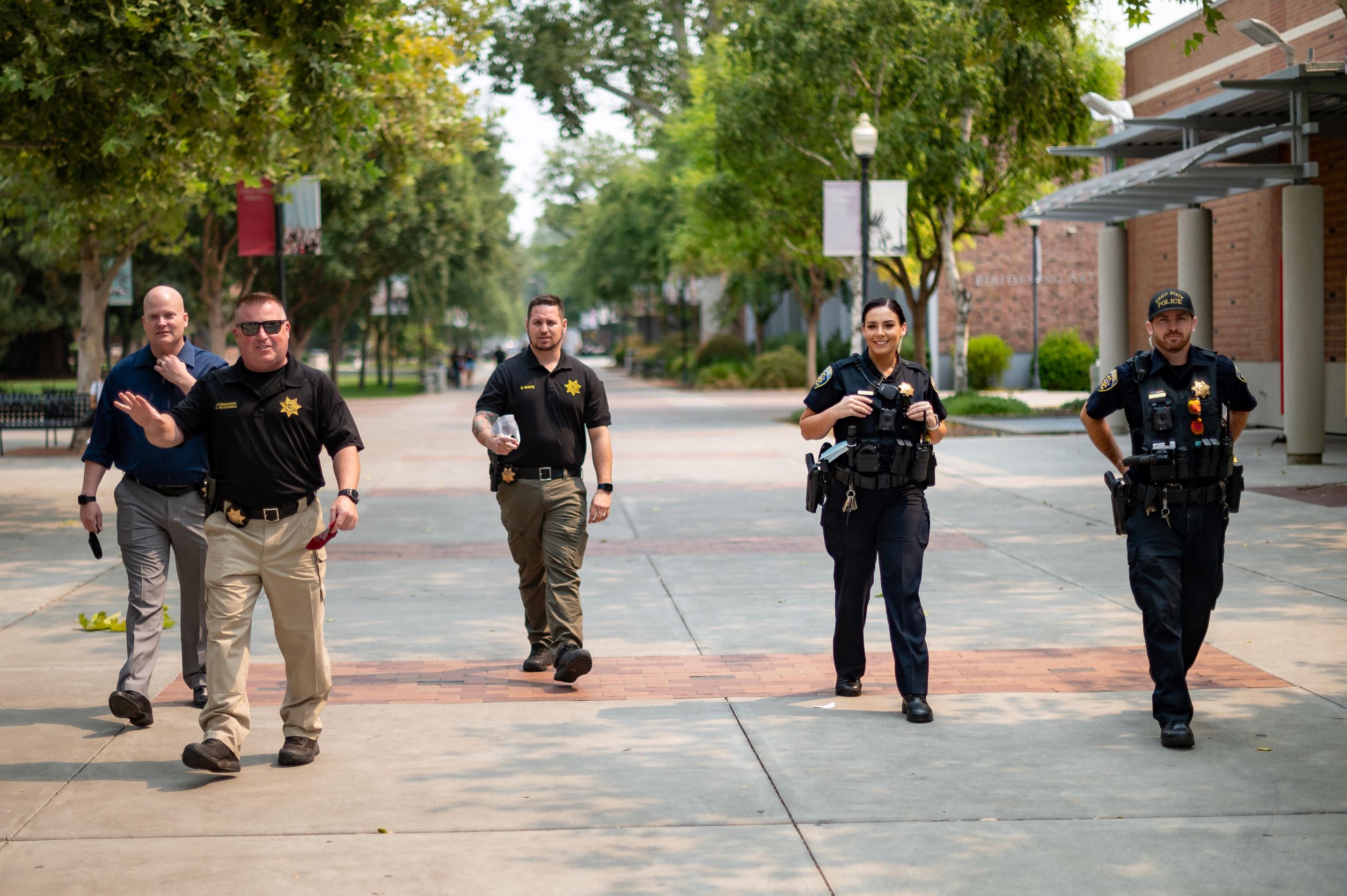Commitments to Our Community
For Emergencies, Dial 9-1-1

Our officers commit to keeping our community safe through respectful interaction and equitable application of the law, building positive relationships, and respecting the value of all human life and dignity without prejudice to anyone.
We commit to:
- Accountability
- 21st Century Policing
- Relationship-Building with Communities of Color
- Non-Cooperation with Federal Immigration Enforcement
- Partnership with Local Law Enforcement
Accountability
In addition to the training and review process for all UPD officers, the department has a longstanding commitment to transparency that includes posting public information on police activity online(opens in new window). We also share incident reports on social media to further our communication outreach.
Additionally, UPD has a Public Safety Advisory Committee(opens in new window) and Citizen Feedback Form(opens in new window) that allow for citizens to address concerns. In 2019, we adopted the use of body-worn cameras to provide greater accountability, and in 2020, UPD launched Tip 411, an anonymous crime reporting tool that can also report officer conduct.
When incidents occur, an internal review process ensures a debriefing, analysis, and potential resulting action.
21st Century Policing
Our mission is to provide a safe environment for our campus community through proactive, progressive, and professional law enforcement services. We will always strive to de-escalate situations without force and use the minimum force necessary as a last resort.
All UPD police officers are sworn and certified by California Commission on Peace Officer Standards and Training(opens in new window) and receive further training in de-escalating situations that might be caused by mental health or controlled substance issues.
Additionally, Chico State’s police department, along with all California State University campuses, pledged our commitment to implement the recommendations of The President’s Task Force on 21st Century Policing (PDF), reported to President Barack Obama in May 2015. Together, we are determined to lead by example to address police use-of-force policies. One example of this was prohibiting the use of or training in the carotid control hold by all CSU police officers in June 2020.
Our full use-of-force policy and all other policies are publicly available on the Policy Manual(opens in new window) page of our website.
Relationship-Building with Communities of Color
We have been working in recent years to foster stronger relationships with all campus communities, but especially those who have felt unsafe, disproportionately targeted, and the subjects of racist actions.
Those efforts take place via day-to-day interactions but also as more focused programs. Those efforts have included campus safety meetings, Coffee with the Cops, tabling in Trinity Commons, meetings with the Cross-Cultural Leadership Center, partnerships with Greek life, and participation on the CARE Team and Campus Activity Review Team.
In step with recommendations from California’s Racial and Identity Profiling Advisory Board, UPD has a clearly written, best-practice, bias-free policing policy that includes data collection and analysis, accountability, and supervisory review. All employees receive training on bias-free policing policies and practices.
Additionally, all hiring recruitments seek to reach a diverse population of candidates that can carry out the department’s mission while further connecting with campus constituencies.
Non-Cooperation with Federal Immigration Enforcement
Per California State University system guidelines (PDF), unless otherwise required by law, we will not enter into agreements with law enforcement agencies for the purpose of enforcing federal immigration laws. UPD will not honor immigration hold requests, nor will it contact, detain, question, or arrest individuals solely on the basis of being—or suspected of being—a person who lacks documentation.
We advise anyone who is approached on campus by officials asking for information or documentation regarding immigration status to immediately contact UPD at 530-898-5555. We will act as a liaison with federal, state, or local officials, and coordinate with the CSU Office of General Counsel to provide guidance, references, and resources as available.
Partnership with Local Law Enforcement
UPD has a memorandum of understanding(opens in new window) with the Chico Police Department that allows UPD officers to exercise peace officer powers within a one-mile radius of campus—largely student neighborhoods. The MOU also ensures mutual law enforcement support in the case of a critical incident, such as an active shooter or other significant safety threat.
In non-emergency situations, UPD turns to the California State University Critical Response Unit (CRU)(opens in new window) for support in keeping the Chico State community safe. CRU is a highly trained unit of police officers from across the CSU system who are well versed in the nuances and special needs of the academic communities they serve. In recent years, CRU has assisted during specific incidents, including the Camp Fire, as well as major holidays, such as Halloween and Labor Day.
